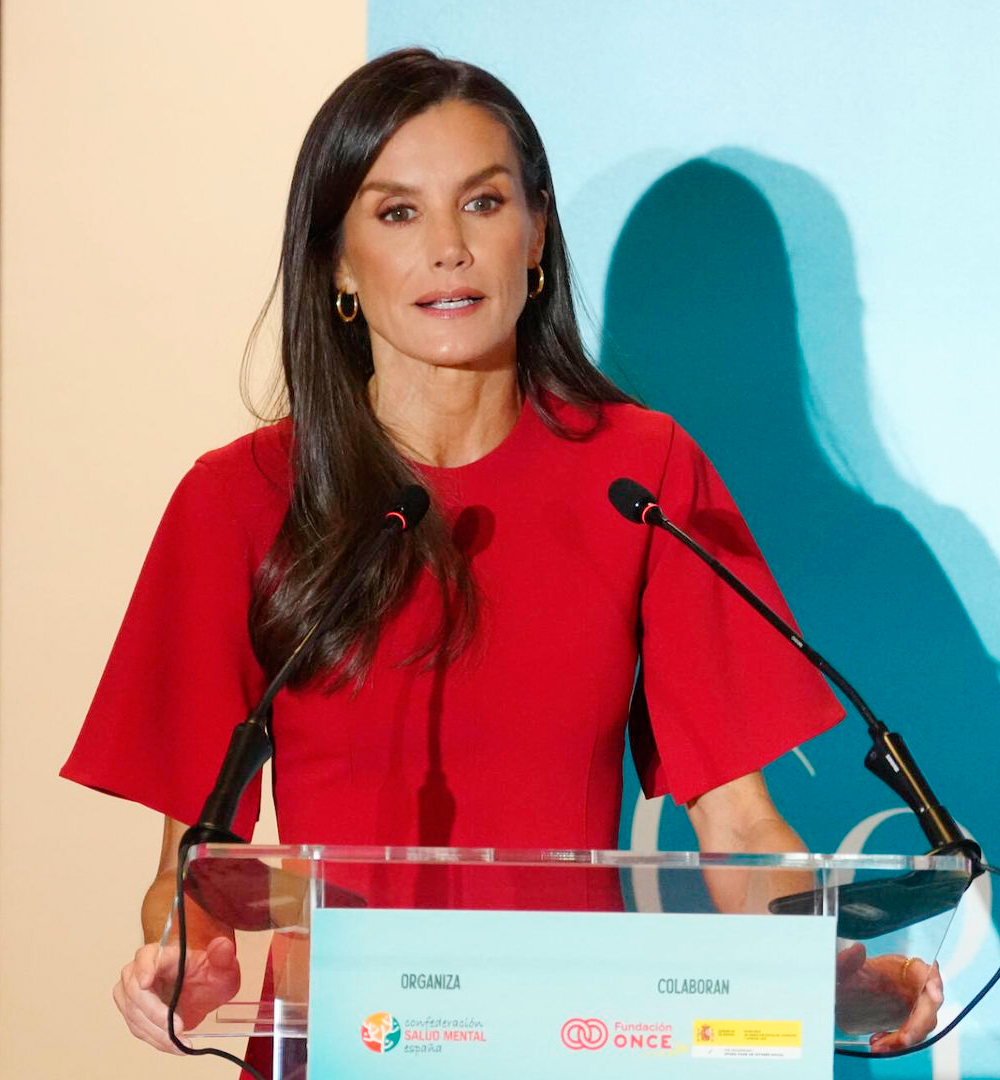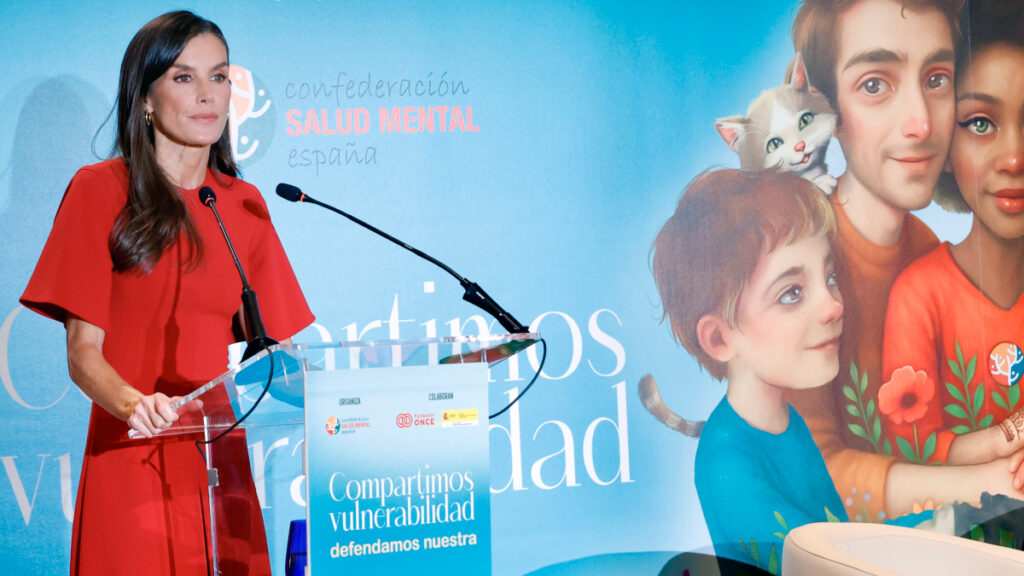Every year on October 10, Queen Letizia typically takes a stand on issues that truly matter. In 2025, her speech on World Mental Health Day was a clear demonstration of this.
The Spanish Queen presided over the event in Madrid, accompanied by the Minister of Health and representatives of the associative movement, in a day focused on mental health during emergencies and catastrophes. A challenging yet necessary topic that resonates with the recent realities in Spain, from floods to fires and volcanic eruptions.

During her speech, Letizia acknowledged the work of the Spanish Mental Health Confederation and posed questions that invite us to reflect: is emotional recovery possible after a disaster? Can we heal the invisible damage left by loss, fear, or uncertainty? She spoke in her usual style—without drama, yet with depth—and emphasized the value of collective support as a path to healing.
One of the most interesting moments occurred when she recalled a previous event about youth and mental health. She quoted a young Canarian educator who said something very powerful: “I feel that adolescents are losing the ability to express their feelings.”

From there, the Queen reflected on the power of words and how reading can help us find meaning and voice, even in the most challenging times. “All roads lead to books,” she remarked with a smile.
Queen Letizia not only supports causes, but also understands and humanizes them. In a time when discussing mental health remains a challenge, hearing her focus on empathy, emotional education, and reading is truly a breath of fresh air.
Speech by Queen Letizia on Mental Health
Good morning, Minister of Health, authorities, President of the Confederation, dear Nel.
A special greeting to all the people from various social organizations who have chosen to be here this morning.
I imagine you’ve read the document published by the organization that invited us, which explains why they decided to dedicate this Mental Health Day to catastrophes, wars, and emergencies, and how these affect mental health. By the way, both the Ministry of Health and the Third Sector Platform have very rigorous documents on how to approach this situation, including from a social perspective.
Well, you talk about insomnia, sadness, the loss of emotional bonds, depression, anxiety, and uncertainty, which are likely caused by fires, floods, earthquakes, dam failures, pandemics, sieges, violence, poverty, evictions, and unemployment.
That said, Mental Health asks itself a question: is recovery possible? Is it possible to alleviate, mitigate, or cure, in some sense, that psychological damage, whether or not it leads to a mental pathology, and to what degree?
And it goes further: is it also possible that this can happen, that there is a certain degree of repair in people who are doubly vulnerable, in people with disabilities?
I often say—and share—that the organizations I work with are great social entrepreneurs and innovators. And soon we will understand what the Spanish Mental Health Confederation, along with other fellow travelers, has achieved after the DANA, the eruption of the Cumbre Vieja volcano, the Lorca earthquake, and the fires we have seen this summer in various parts of Spain.
We will see how this learning community has been, in order to continue promoting collective care through the active participation of all.
I was going to leave now, so that the Minister of Health and the President of the Spanish Mental Health Confederation, Nel, could take the floor. However, yesterday I was watching an event—we were just discussing it with him—that the Confederation organized on Wednesday, the 8th, the day before yesterday, in the Constitutional Hall of the Congress of Deputies. It was about youth, young people, and mental health.
In it, I was talking to four people—some of whom are here—about that equation, and I mentioned three key words: teenagers, social media, and mental health.
And Nel asked a question; in this case, I’m going to focus on what Calixto Herrera said, a young educator who works in a public school in the Canary Islands. They were discussing this, how this use of technology affects things. There’s a lot to discuss, but we won’t focus on this just yet.
But I liked what Calixto said. He said, “I feel that teenagers are losing the ability to narrate, to put words to what they are going through in such an extreme situation.”
And what happens when you can’t put words to what you feel, to what hurts, to the damage, to the loss, to the uncertainty? I thought.
What tools are there to help us continue narrating, learn to narrate, and keep finding words?
What tool do you think is good for that? The one you’re thinking about: reading books.
Reading books that also include all the neuroscientific literature supporting the improvement of cognitive function, among many other benefits.So, in the end, all roads lead to books, as Calixto said, to reading books.
Let’s continue with the Minister of Health and the President of the Confederation.
Thank you very much.

